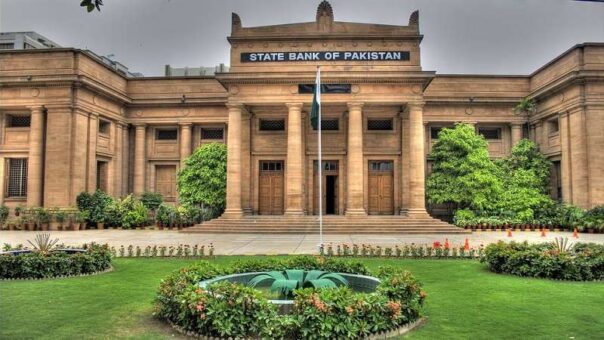Karachi, April 30, 2024 – The State Bank of Pakistan (SBP) confirmed receiving $1.1 billion from the International Monetary Fund (IMF) on Tuesday.
This critical influx of funds follows the IMF Executive Board’s approval of the second review under the Stand-by Arrangement (SBA) for Pakistan, concluded on April 29, 2024.
The IMF’s latest disbursement of SDR 828 million (approximately US$1.1 billion), reflects the ongoing international confidence in Pakistan’s reformative measures and economic management under the SBA. This recent injection is expected to be reflected in the SBP’s foreign exchange reserves in the week ending May 3, 2024, fortifying Pakistan’s financial standing amidst challenging global economic conditions.
The approval by the IMF’s Executive Board comes after a detailed evaluation of Pakistan’s adherence to the economic targets set under the SBA, which was originally sanctioned on July 12, 2023, for a nine-month period. With this latest disbursement, the total funds released under the SBA have now reached around $3 billion.
Designed to stabilize the economy, the SBA has laid down a comprehensive policy framework for Pakistan, targeting key economic vulnerabilities. The program’s focus extends across several critical areas such as fiscal adjustments to ensure debt sustainability, preservation of essential social spending, and stabilization of the foreign exchange market to eradicate shortages.
Moreover, the program supports rigorous disinflationary measures and structural reforms aimed at improving governance in state-owned enterprises (SOEs), enhancing the energy sector’s efficiency, and increasing climate resilience. These reforms are not only crucial for immediate economic stabilization but are also essential for sustainable long-term growth.
Current economic indicators provide a glimpse of the positive impact of these reforms. Pakistan’s economy is projected to grow by 2% in FY24, driven by a recovery momentum observed in the latter half of the fiscal year. Remarkably, the country has recorded a primary surplus of 1.8% of GDP in the first half of FY24, which is well above the initial projections and sets a robust trajectory towards achieving a fiscal year-end target of 0.4% of GDP.
Despite these gains, challenges remain with inflation rates still elevated, though they are expected to decelerate to around 20% by the end of June. Addressing this during the IMF board meeting, Deputy Managing Director and Chair, Antoinette Sayeh, acknowledged Pakistan’s strides under the SBA. She praised the return to moderate economic growth and the easing of external pressures but emphasized the necessity of persisting with strong macroeconomic policies and structural reforms.
Sayeh also underscored the importance of continued external support to leverage the stability achieved so far. This external backing is deemed crucial for Pakistan as it aims to not only consolidate the gains from the IMF’s financial assistance but also to attract further support from other multilateral and bilateral partners.
As Pakistan navigates through these reforms, the consistent support from international institutions like the IMF remains pivotal in ensuring the country’s economic stability and growth, providing a more predictable and stable economic environment for its citizens and investors alike.
